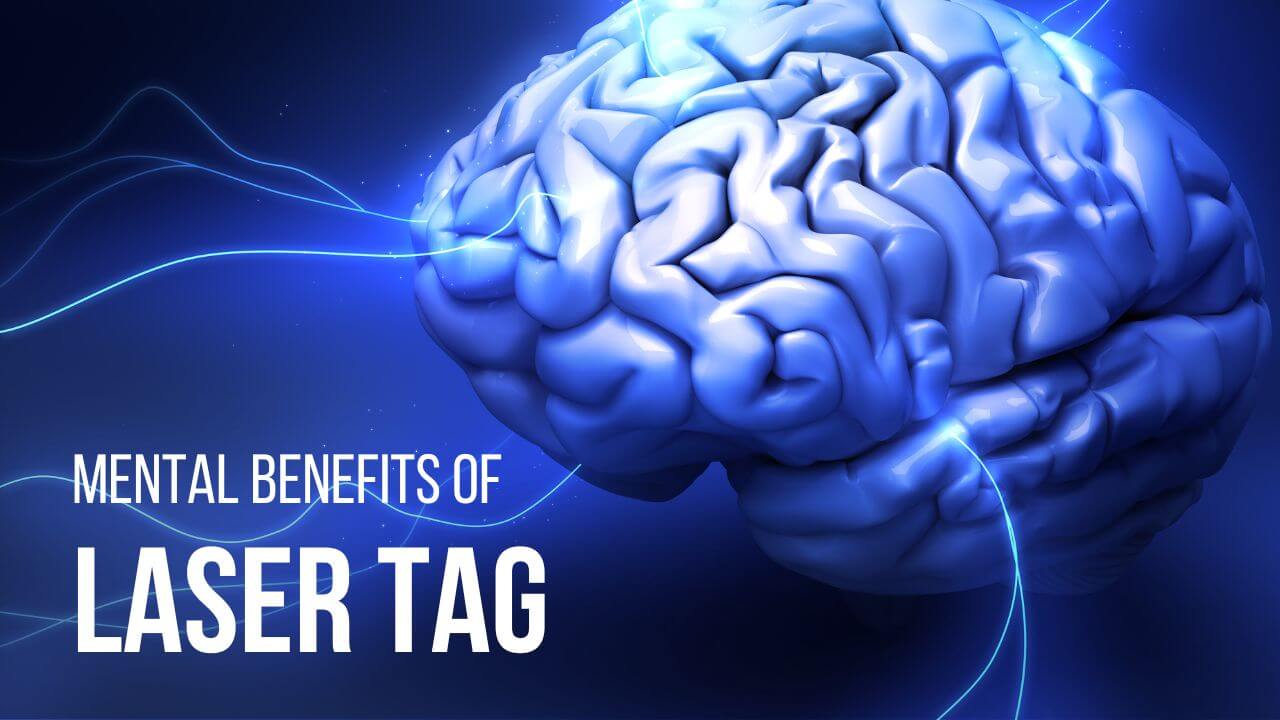Are you looking for a fun and engaging activity that can provide not only physical exercise but also mental stimulation? Look no further than laser tag! Many people believe that laser tag is just a game for kids or an outdated activity. However, laser tag is more popular than ever. It has numerous mental benefits that are beneficial for people of all ages. So, what are the mental benefits of laser tag?
Laser tag requires players to think on their feet, make quick decisions, and use strategic thinking and problem-solving skills in a fast-paced game. This mental stimulation can help improve cognitive abilities, such as memory, processing speed, and reaction time. Moreover, laser tag also demands that players use both their left and right brains since it requires logical and creative thinking. For example, players must use logic to track their opponents' movements and anticipate their next moves while being creative in winning the game.
But that's not all. Laser tag also provides a fun and interactive way to relieve stress and improve mood. In today's fast-paced and stressful world, taking time for yourself and engaging in activities that can help reduce stress is essential. Laser tag allows you to let loose and have fun while getting your heart rate up and releasing endorphins.
In the following sections, we will dive deeper into the mental benefits of laser tag and explore how this exciting activity can help strengthen your mind. So, keep reading to learn more!
Improved Cognitive Abilities
Playing laser tag can help improve cognitive abilities, including memory, processing speed, and reaction time. Laser tag requires players to think on their feet, make quick decisions, and react to their surroundings. This mental stimulation can help improve cognitive abilities, such as memory, processing speed, and reaction time.
-
Memory: Laser tag requires players to keep track of their opponents' movements and anticipate their next moves. This helps players improve their memory and recall abilities.
-
Processing speed: In laser tag, players must process information quickly and make split-second decisions. This improves their processing speed, which is important in everyday life.
-
Reaction time: Laser tag demands quick reactions and reflexes, which can help improve reaction time. This can be especially beneficial for individuals who need to react quickly in their daily lives, such as athletes or first responders.
Strategic Thinking and Problem Solving Skills
Laser tag requires players to use strategic thinking and problem-solving skills to outmaneuver their opponents and win the game.
-
Strategic thinking: In laser tag, players must use logical and creative thinking to track their opponents' movements and anticipate their next moves. This requires strategic thinking and planning.
-
Problem-solving skills: Laser tag also requires players to develop creative solutions to overcome obstacles and win the game. This can help improve problem-solving skills in everyday life.
Stress Relief and Mood Improvement
Playing laser tag can also help relieve stress and improve mood. Laser tag is a fun and exciting activity that can help distract players from their daily stresses and worries.
-
Stress relief: Laser tag can help reduce stress by providing a fun and exciting outlet for releasing pent-up energy and tension.
-
Mood improvement: Playing laser tag can also improve mood by releasing endorphins, natural mood boosters. In addition, the social interaction and teamwork involved in laser tag can also help improve mood and reduce feelings of isolation.
Therapeutic Benefits
Laser tag can also be a therapeutic tool for individuals with mental health conditions, such as anxiety or depression.
-
Anxiety: Laser tag can help individuals with anxiety or stress by providing a fun and safe outlet for releasing pent-up energy and tension. The game's fast-paced nature can also help distract individuals from their anxious thoughts and feelings.
-
Depression: Playing laser tag can also help individuals with depression by releasing endorphins, natural mood boosters. In addition, the social interaction and teamwork involved in laser tag can also help reduce feelings of isolation and improve mood.
Conclusion
In conclusion, laser tag offers numerous mental benefits, including improved cognitive abilities, strategic thinking, and problem-solving skills, stress relief, mood improvement, and therapeutic benefits.
If you enjoyed this article, you may also learning about the physical benefits of laser tag and how it can be used as a great fitness routine. I also wrote an article about the many other benefits of playing laser tag as well.
Whether played as a recreational activity or a therapeutic tool, laser tag is a fun and exciting way to improve mental health and strengthen the mind. So why not gather your friends and family and come down to Maziply Toys for a few rounds of laser tag?

